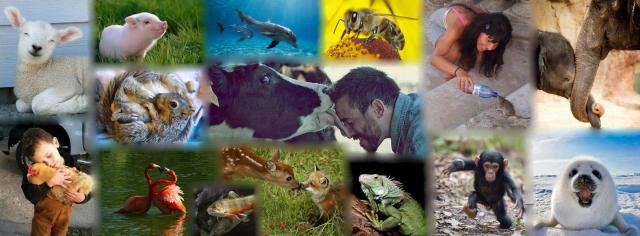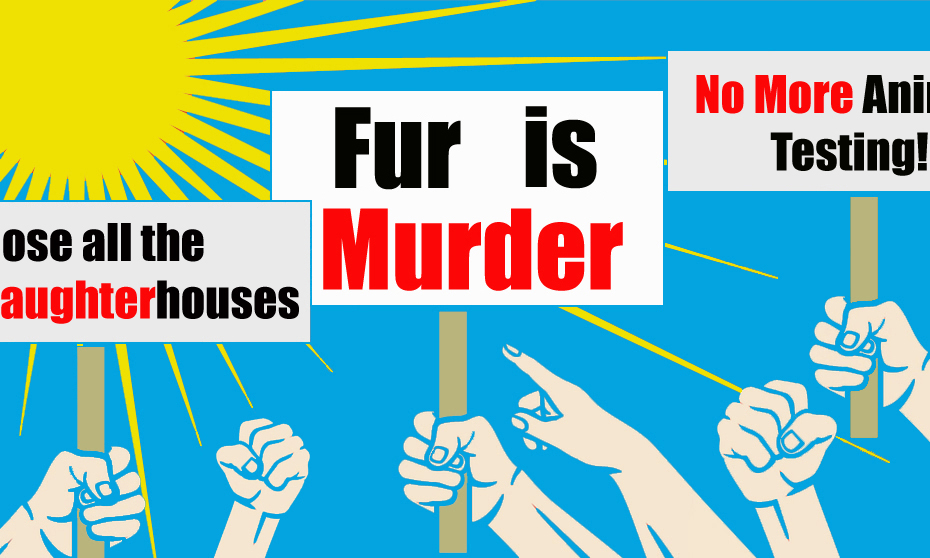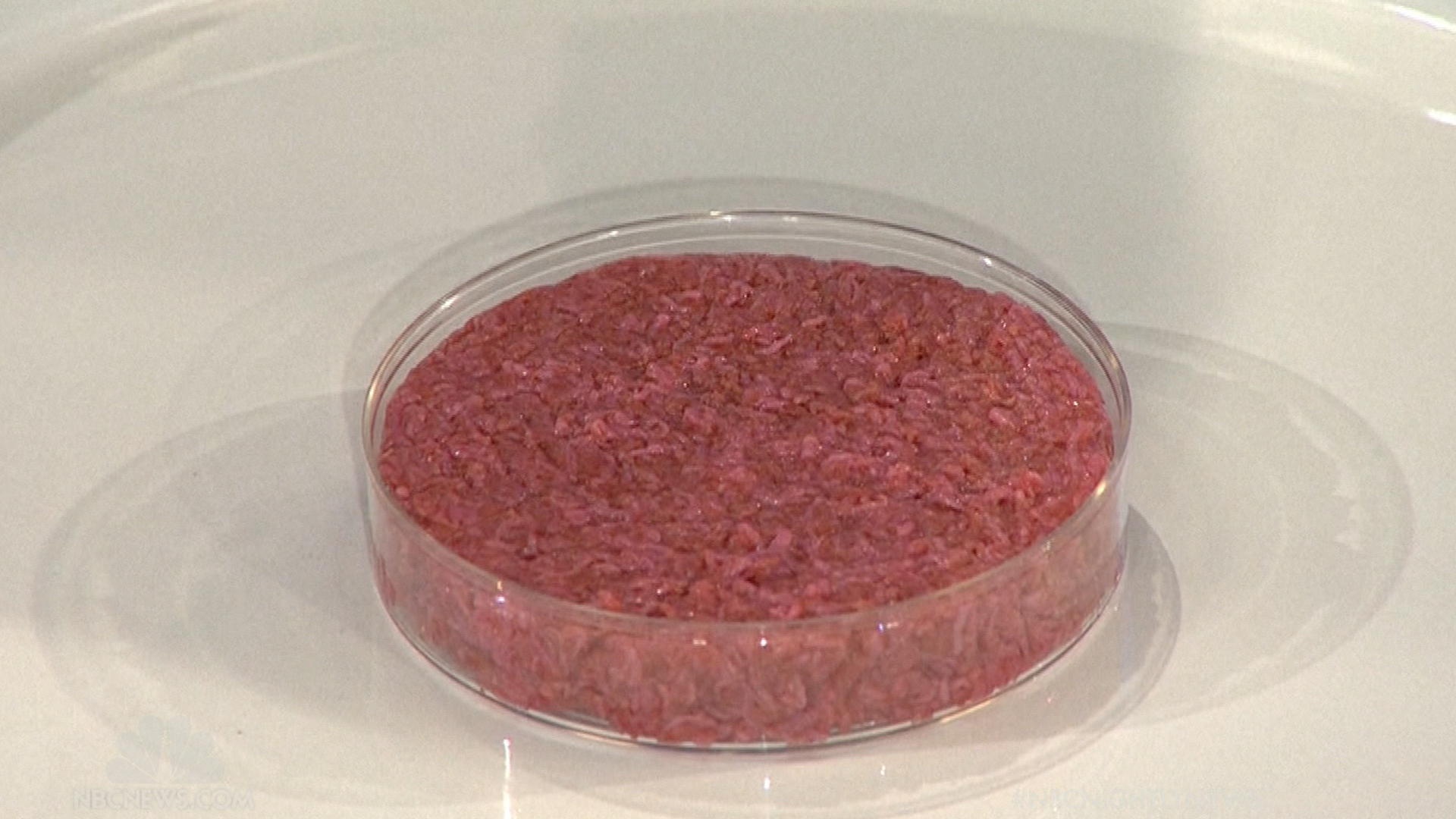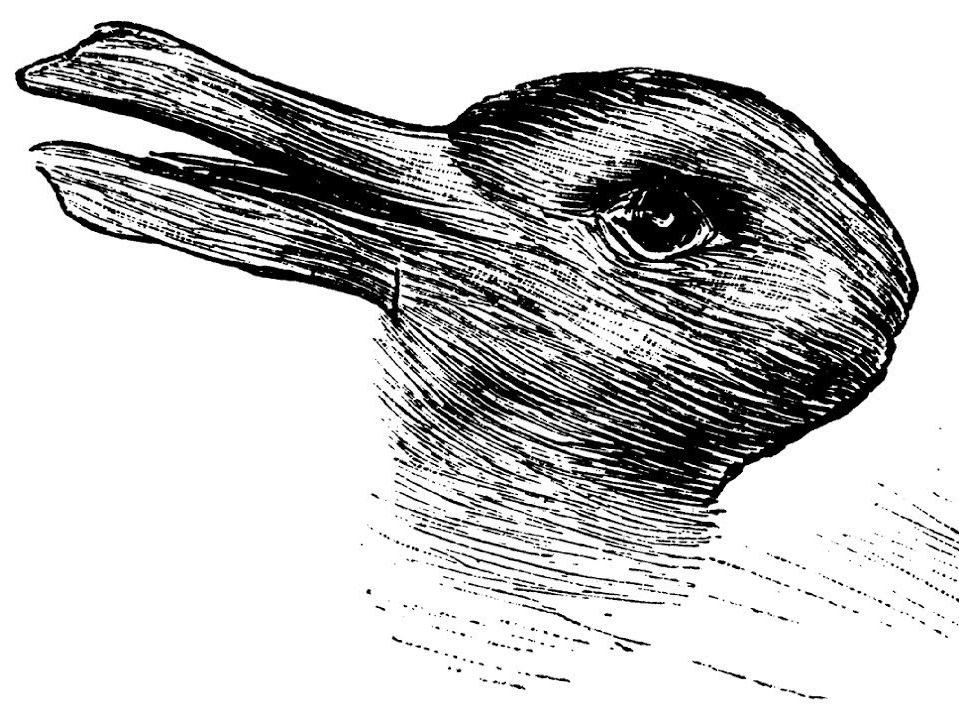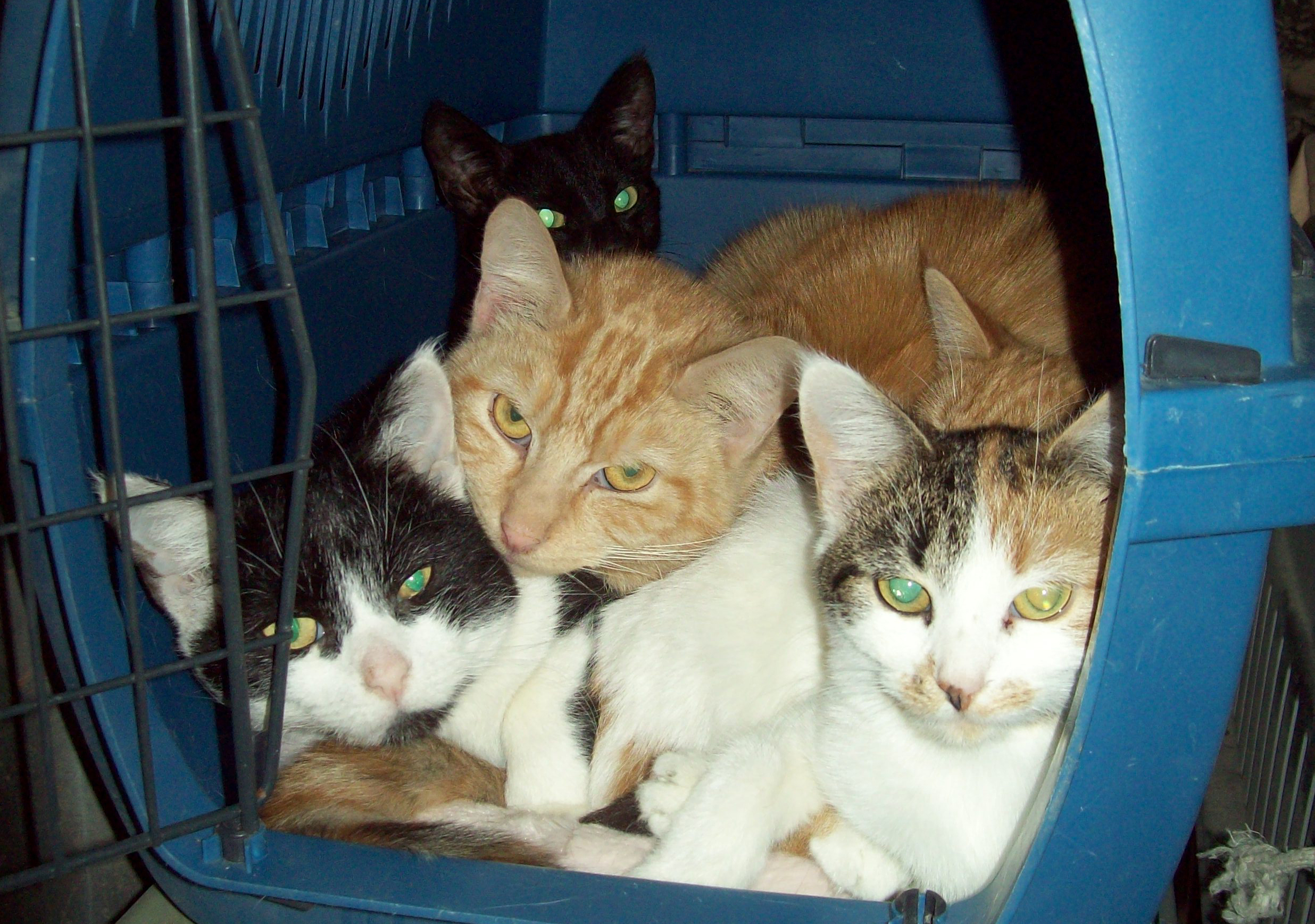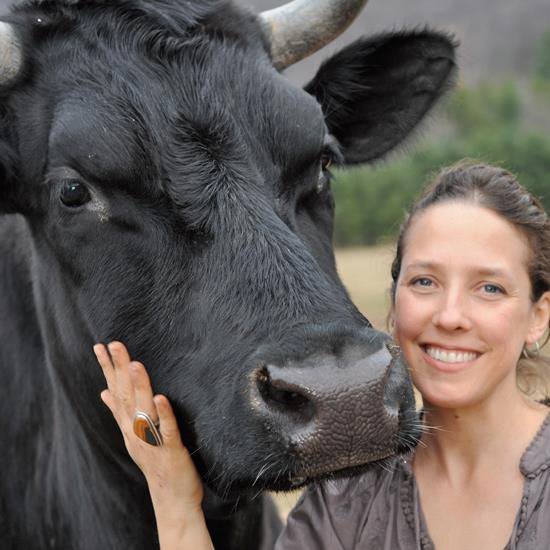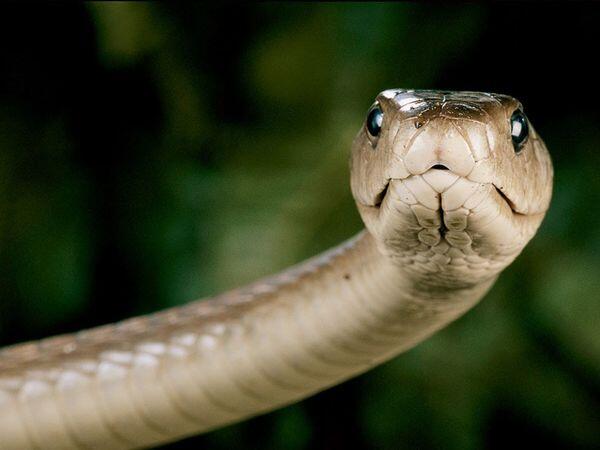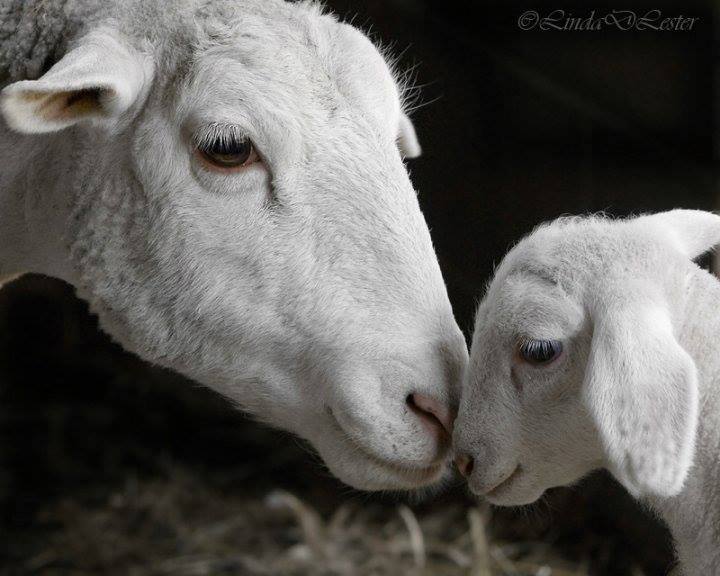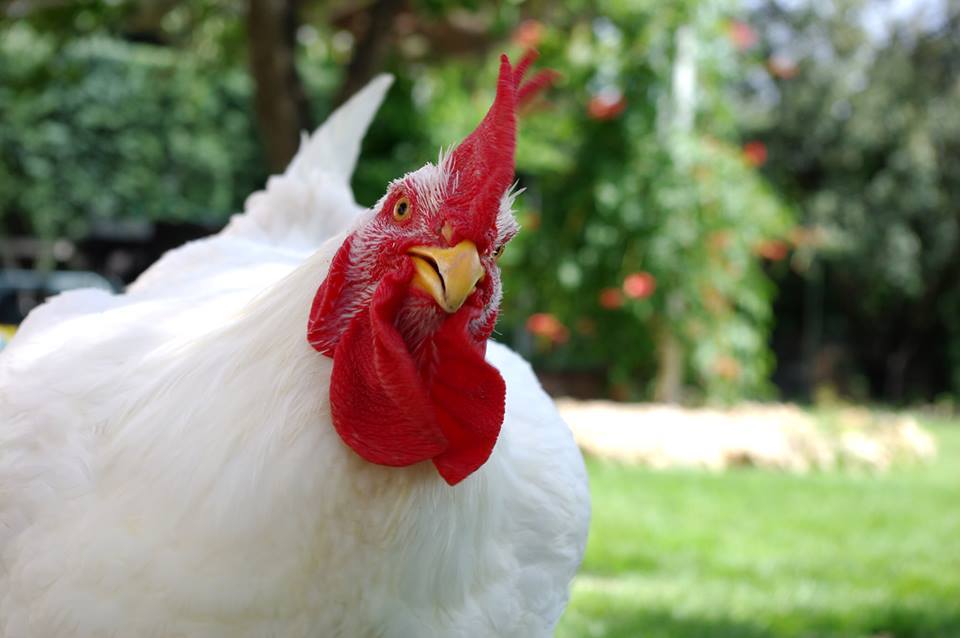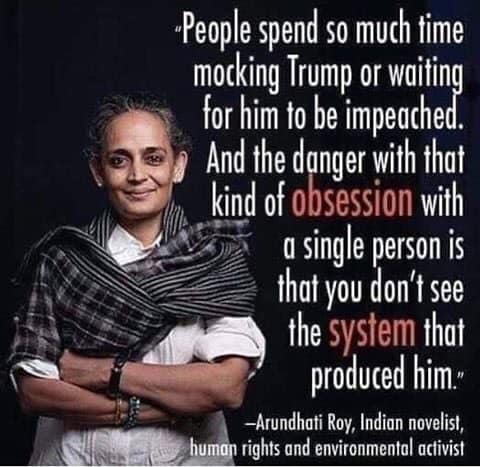
–
Veganism is not a diet, a health plan or a fitness regimen. In terms of personal action, it’s a moral stance against the intentional use of nonhuman animals for any of our interests. In broader terms, it’s a social justice movement concerned with eliminating the intentional exploitation of nonhumans by humans in all of society.
Any benefits to human health or the environment caused by following a plants-only diet are merely incidental benefits to being Vegan and not the reason for adhering to the moral stance called Veganism. This post is merely meant to disseminate information regarding the health of a plants-only diet. It’s not meant to equate Veganism and a mere diet. If you’re confused as to what Veganism means, please read this first.
In addition to this, people do need to be informed about the health benefits and risks of consuming different substances. But, when educating, I prefer to use the health info merely to back up the fact that humans do not need animal substances in our diet. This is the only way we’re going to get people to go Vegan, not merely plant-based dieters.
Having said that, almost every major medical organization now acknowledges the fact that humans are healthier on a plants-only diet than one with animal substances in it:
Section 1:
1) The Academy of Nutrition and Dietetics (formerly The American Dietetic Association): the world’s largest organization of food and nutrition professionals. The Academy is committed to improving the nation’s health and advancing the profession of dietetics through research, education and advocacy.
“It is the position of the American Dietetic Association that appropriately planned vegetarian diets, including total vegetarian or vegan diets, are healthful, nutritionally adequate, and may provide health benefits in the prevention and treatment of certain diseases. Well-planned vegetarian diets are appropriate for individuals during all stages of the life cycle, including pregnancy, lactation, infancy, childhood, and adolescence, and for athletes.”
http://www.ncbi.nlm.nih.gov/pubmed/19562864
2) The Mayo Clinic: the first and largest integrated not-for-profit medical group practice in the world, employing more than 3,800 physicians and scientists and 50,900 allied health staff. It spends $500 million dollars on research a year.
“However, with a little planning a vegetarian diet can meet the needs of people of all ages, including children, teenagers, and pregnant or breast-feeding women. The key is to be aware of your nutritional needs so that you plan a diet that meets them.”
https://www.mayoclinic.org/healthy-lifestyle/nutrition-and-healthy-eating/in-depth/vegetarian-diet/art-20046446
3) Kaiser Permanente: the largest managed care organization in the United States, published an article supporting the adoption of a plant-based diet earlier this spring.
“Healthy eating may be best achieved with a plant-based diet, which we define as a regimen that encourages whole, plant-based foods and discourages meats, dairy products, and eggs as well as all refined and processed foods. We present a case study as an example of the potential health benefits of such a diet. Research shows that plant-based diets are cost-effective, low-risk interventions that may lower body mass index, blood pressure, HbA1C, and cholesterol levels. They may also reduce the number of medications needed to treat chronic diseases and lower ischemic heart disease mortality rates. Physicians should consider recommending a plant-based diet to all their patients, especially those with high blood pressure, diabetes, cardiovascular disease, or obesity.”
http://www.thepermanentejournal.org/issues/2013/spring/5117-nutrition.html
***A follow up written by Dr. John McDougall and his son, Dr. Craig McDougall concerning Kaiser Permanente’s warning about potential nutrient deficiencies:
“In our experience of treating more than 5000 patients with a low-fat, whole foods, plant-based (vegan) diet, with follow-up lasting as long as 28 years, we have not seen any deficiencies of protein, iron, calcium, or essential fatty acids.”
https://www.thepermanentejournal.org/issues/2013/fall/5552-diet.html
4) The British National Health Service (NHS): is the largest and the oldest single-payer healthcare system in the world. It provides the majority of healthcare in England.
“With good planning and an understanding of what makes up a healthy, balanced vegan diet, you can get all the nutrients your body needs.”
https://www.nhs.uk/live-well/eat-well/the-vegan-diet
5) Cleveland Clinic: is regarded as one of the top hospital in the United States. With around 1,700 staff physicians representing 120 medical specialties, this hospital helps patients not only from all 50 states, but from more than 100 other nations.
“There really are no disadvantages to a vegetarian or vegan diet. A vegetarian diet offers many potential health benefits. Choosing vegetarian foods, rather than animal-based ones, for the nutrients you need eliminates much of the saturated fat and cholesterol found in a meat-based diet. A vegetarian diet can help lower cholesterol and blood pressure levels and help cut calories. These changes can reduce your risk of obesity, heart disease, hypertension, diabetes and possibly cancer.”
https://my.clevelandclinic.org/health/articles/17593-vegetarianism–heart-health
6) University of Pittsburgh Medical Center (UPMC): with 4,200 licensed beds and 400 outpatient sites, UPMC is one of the largest medical centers in the world.
“If properly planned, a vegan diet can provide all the nutrients you need. In general, people who don’t eat meat: Weigh less than people who eat meat. Are less likely to die of heart disease. Have lower cholesterol levels. Are less likely to get: High blood pressure; Prostate cancer; Colon cancer; Type 2 diabetes.”
https://www.upmc.com/health-library/article?hwid=abq2485
7) The Ronald Reagan UCLA Medical Center (UCLA): having research centers covering nearly all major specialties of medicine, UCLA is considered on of the top three hospitals in the US. This hospital has been ranked in the top twenty in 15 of the 16 medical specialties ranked in the US News ranking.
“Some of the health benefits of a vegetarian diet may include: [d]ecreased blood cholesterol levels and blood pressure; [l]ower incidence of heart disease, some forms of cancer, and digestive disorders like constipation and diverticula disease; [l]ower incidence of obesity and some forms of diabetes.”
http://www.dining.ucla.edu/housing_site/dining/SNAC_pdf/Vegetarianism.pdf
8) Dr Michael Greger, MD: a physician, author, and internationally recognized speaker on a number of important public health issues. All proceeds from his speaking engagements and the sale of his books and DVDs are donated to his 501(c)3 nonprofit NutritionFacts.org, the first science-based, non-commercial website to provide free daily videos and articles on the latest discoveries in nutrition.
“These are the top 15 causes of death, and a plant based diet can prevent nearly all of them, can help treat more than half of them, and in some cases even reverse the progression of disease, including our top three killers.”
http://nutritionfacts.org/video/uprooting-the-leading-causes-of-death
–
Bonus: List of doctors who are well-known and promote a plants-only diet for curing diseases:
http://www.bigtentvegan.com/doctors-dieticians-and-nutritionists
Section 2:-
Protein in the Vegan Diet
by Reed Mangels, PhD, RD
From Simply Vegan, 5th Edition
Summary: It is easy for a vegan diet to meet recommendations for protein, as long as calorie intake is adequate. Strict protein combining is not necessary; it is more important to eat a varied diet throughout the day.
Some Americans are obsessed with protein. Vegans are bombarded with questions about where they get their protein. Athletes used to eat thick steaks before competition because they thought it would improve their performance. Protein supplements are sold at health food stores. This concern about protein is misplaced. Although protein is certainly an essential nutrient which plays many key roles in the way our bodies function, we do not need huge quantities of it. Only about one calorie out of every 10 we take in needs to come from protein. Vegan athletes, especially in the early stages of training, may have higher protein needs than vegans who exercise moderately or who are not active. Vegan athletes’ protein needs can range from 0.36 to 0.86 grams of protein per pound 2. Protein supplements are not needed to achieve even the highest level of protein intake.
How much protein do we need? The RDA recommends that we take in 0.8 grams of protein for every kilogram that we weigh (or about 0.36 grams of protein per pound that we weigh) 1. This recommendation includes a generous safety factor for most people. When we make a few adjustments to account for some plant proteins being digested somewhat differently from animal proteins and for the amino acid mix in some plant proteins, we arrive at a level of 0.9 gram of protein per kilogram body weight (0.41 grams per pound). If we do a few calculations we see that the protein recommendation for vegans amounts to close to 10% of calories coming from protein. [For example, a vegan male weighing 174 pounds could have a calorie requirement of 2,600 calories. His protein needs are calculated as 174 pounds x 0.41 g/pound = 71 grams of protein. 71 grams of protein x 4 calories/gram of protein = 284 calories from protein. 284 divided by 2,600 calories = 10.9% of calories from protein.] If we look at what vegans are eating, we find that, typically, between 10-12% of calories come from protein 3. This contrasts with the protein intake of non-vegetarians, which is close to 14-18% of calories.
So, in the United States it appears that vegan diets are commonly lower in protein than standard American diets. Remember, though, with protein, more (than the RDA) is not necessarily better. There do not appear to be health advantages to consuming a high protein diet. Diets that are high in protein may even increase the risk of osteoporosis 4 and kidney disease 5.
| Table 1: Sample Menus Showing How Easy It Is To Meet Protein Needs |
| Protein (grams) |
| Breakfast: |
1 cup Oatmeal |
6 |
|
1 cup Soy Milk |
7 |
|
1 medium Bagel |
10 |
| Lunch: |
2 slices Whole Wheat Bread |
7 |
|
1 cup Vegetarian Baked Beans |
12 |
| Dinner: |
5 oz firm Tofu |
12 |
|
1 cup cooked Broccoli |
4 |
|
1 cup cooked Brown Rice |
5 |
|
2 Tbsp Almonds |
4 |
| Snack: |
2 Tbsp Peanut Butter |
8 |
|
6 Crackers |
2 |
| TOTAL |
|
77 grams |
| Protein Recommendation for Male Vegan |
63 grams |
| [based on 0.9 gram of protein per kilogram body weight for 70 kilogram (154 pound) male] |
|
| Breakfast: |
2 slices Whole Wheat Toast |
7 |
|
2 Tbsp Peanut Butter |
8 |
| Lunch: |
6 oz Soy Yogurt |
6 |
|
2 Tbsp Almonds |
4 |
|
1 medium Baked Potato |
3 |
| Dinner: |
1 cup cooked Lentils |
18 |
|
1 cup cooked Bulgur |
6 |
| Snack: |
1 cup Soy Milk |
7 |
| TOTAL |
|
59 grams |
| Protein Recommendation for Female Vegan |
52 grams |
| [based on 0.9 gram of protein per kilogram body weight for 57.5 kilogram (126 pound) female] |
| Additional food should be added to these menus to provide adequate calories and to meet requirements for nutrients besides protein. |
Table 2 shows the amount of protein in various vegan foods and also the number of grams of protein per 100 calories. To meet protein recommendations, the typical moderately active adult male vegan needs only 2.2 to 2.6 grams of protein per 100 calories and the typical moderately active adult female vegan needs only 2.3 to 2.8 grams of protein per 100 calories. These recommendations can be easily met from vegan sources.
| Table 2: Protein Content of Selected Vegan Foods |
| FOOD |
AMOUNT |
PROTEIN |
PROTEIN |
|
|
(gm) |
(gm/100 cal) |
|
| Tempeh |
1 cup |
31 |
9.6 |
| Soybeans, cooked |
1 cup |
29 |
9.6 |
| Seitan |
3 ounces |
21 |
17.5 |
| Lentils, cooked |
1 cup |
18 |
7.8 |
| Black beans, cooked |
1 cup |
15 |
6.7 |
| Kidney beans, cooked |
1 cup |
15 |
6.8 |
| Chickpeas, cooked |
1 cup |
15 |
5.4 |
| Pinto beans, cooked |
1 cup |
15 |
6.3 |
| Lima beans, cooked |
1 cup |
15 |
6.8 |
| Black-eyed peas, cooked |
1 cup |
13 |
6.7 |
| Veggie burger |
1 patty |
13 |
18.6 |
| Veggie baked beans |
1 cup |
12 |
5.0 |
| Tofu, firm |
4 ounces |
11 |
10.6 |
| Tofu, regular |
4 ounces |
10 |
10.7 |
| Bagel |
1 med. (3.5 oz) |
10 |
3.9 |
| Quinoa, cooked |
1 cup |
8 |
3.7 |
| Peas, cooked |
1 cup |
8 |
6.6 |
| Textured Vegetable Protein (TVP), cooked |
1/2 cup |
8 |
15.0 |
| Peanut butter |
2 Tbsp |
8 |
4.1 |
| Veggie dog |
1 link |
8 |
13.3 |
| Spaghetti, cooked |
1 cup |
8 |
3.7 |
| Almonds |
1/4 cup |
8 |
3.7 |
| Soy milk, commercial, plain |
1 cup |
7 |
7.0 |
| Whole wheat bread |
2 slices |
7 |
5.2 |
| Almond butter |
2 Tbsp |
7 |
3.4 |
| Soy yogurt, plain |
8 ounces |
6 |
4.0 |
| Bulgur, cooked |
1 cup |
6 |
3.7 |
| Sunflower seeds |
1/4 cup |
6 |
3.3 |
| Cashews |
1/4 cup |
5 |
2.7 |
| Spinach, cooked |
1 cup |
5 |
13.0 |
| Broccoli, cooked |
1 cup |
4 |
6.7 |
Sources: USDA Nutrient Database for Standard Reference, Release 24, 2011 and manufacturers’ information.
The recommendation for protein for adult male vegans is around 63 grams per day; for adult female vegans it is around 52 grams per day. |
It is very easy for a vegan diet to meet the recommendations for protein. Nearly all vegetables, beans, grains, nuts, and seeds contain some, and often much, protein. Fruits, sugars, fats, and alcohol do not provide much protein, so a diet based only on these foods would have a good chance of being too low in protein. However, not many vegans we know live on only bananas, hard candy, margarine, and beer. Vegans eating varied diets containing vegetables, beans, grains, nuts, and seeds rarely have any difficulty getting enough protein as long as their diet contains enough energy (calories) to maintain weight. [See Feeding Vegan Kids, Pregnancy and the Vegan Diet, and the section on lactation (page 186, in Simply Vegan), for details about protein needs during these special times.]
What about combining or complementing protein? Doesn’t that make the protein issue much more complex? Let’s look at a little background on the myth of complementing proteins. Protein is made up of amino acids, often described as its building blocks. We actually have a biological requirement for amino acids, not for protein. Humans cannot make nine of the twenty common amino acids, so these amino acids are considered to be essential. In other words, we must get these amino acids from our diets. We need all nine of these amino acids for our body to make protein.
Some people say that eggs, cow’s milk, meat, and fish are high quality protein. This means that they have large amounts of all the essential amino acids. Soybeans, quinoa (a grain), and spinach also are considered high quality protein. Other protein sources of non-animal origin usually have all of the essential amino acids, but the amounts of one or two of these amino acids may be low. For example, grains are lower in lysine (an essential amino acid) and legumes are lower in methionine (another essential amino acid) than those protein sources designated as high quality protein.
Frances Moore Lappe, in her book Diet for a Small Planet 6 advocated the combining of a food low in one amino acid with another food containing large amounts of that amino acid. This got to be a very complicated process, with each meal having specific amounts of certain foods in order to be certain of getting a favorable amino acid mix. Many people got discouraged with the complexity of this approach. Actually, Lappe was being overly conservative to avoid criticism from the “Nutrition Establishment.” She has since repudiated strict protein combining, saying, “In combating the myth that meat is the only way to get high quality protein, I reinforced another myth. I gave the impression that in order to get enough protein without meat, considerable care was needed in choosing foods. Actually it is much easier than I thought” 7.
| Table 3: Amounts of Foods Providing Recommended Amounts of Essential Amino Acids |
| 12-3/4 cups of cooked corn OR 8 large potatoes OR 2-1/2 cups of tofu OR 15-1/2 cups of cooked brown rice |
| Any one of the above foods, eaten in the amount specified, would provide the recommended amounts of all essential amino acids for an adult male. Women would need about 20% less of each food due to lower recommendations. This concept is illustrated below: |
| Food |
Try |
Thr |
Iso |
Leu |
Lys |
Met+Cys |
Phe+Tyr |
Val |
| Adult RDA,154 lb male (1) |
350 |
1400 |
1330 |
2940 |
2660 |
1330 |
2310 |
1680 |
| 12-3/4 cups corn |
437 |
2527 |
2527 |
6801 |
2679 |
1824 |
5339 |
3629 |
| 8 large potatoes |
646 |
2057 |
2033 |
2990 |
3277 |
1723 |
3971 |
3134 |
| 2-1/2 cups tofu |
780 |
2045 |
2480 |
3808 |
3298 |
1333 |
4112 |
2530 |
| 15-1/2 cups cooked rice |
907 |
2569 |
2962 |
5773 |
2660 |
2418 |
6237 |
4111 |
| Source: USDA Nutrient Database for Standard Reference, Release 24, 2011. |
| Notes: Amounts of amino acids are in milligrams. Try=tryptophan, Thr=threonine, Iso=isoleucine, Leu=leucine, Lys=lysine, Met+Cys=methionine+cysteine, Phe+Tyr=phenylalanine+tyrosine, Val=valine |
We recommend eating a variety of unrefined grains, legumes, seeds, nuts, and vegetables throughout the day, so that if one food is low in a particular essential amino acid, another food will make up this deficit 8,9.
As an extreme example, even if you only ate one kind of grain, bean, potato, or vegetable as a protein source, and ate enough of that food, you could meet your protein and amino acid needs. Admittedly, it would be a very monotonous way to eat and you might miss out on other nutrients. We point this out, however, to illustrate the idea that almost all non-animal protein sources contain all of the essential amino acids. Table 3 above shows the amount of rice, corn, potatoes, or tofu that an adult male would need to eat if he relied on only one food as a protein source. Women would need about 20% less food because of women’s lower protein requirements.
References
- Food and Nutrition Board, Institute of Medicine. Dietary Reference Intakes for Energy, Carbohydrate, Fiber, Fat, Fatty Acids, Cholesterol, Protein, and Amino Acids. Washington, DC: National Academy Press, 2002.
- Rodriguez NR, DiMarco NM, Langley S. Position of the American Dietetic Association, Dietitians of Canada, and the American College of Sports Medicine: Nutrition and athletic performance. J Am Diet Assoc2009;109:509-27.
- Mangels R, Messina V, Messina M. The Dietitian’s Guide to Vegetar-ian Diets, 3rd ed. Sudbury, MA: Jones and Bartlett Learning, 2011.
- Sellmeyer DE, Stone KL, Sebastian A, et al. A high ratio of dietary animal to vegetable protein increases the rate of bone loss and the risk of fracture in postmenopausal women. Am J Clin Nutr 2001;73:118-22.
- Knight EL, Stampfer MJ, Hankinson SE, et al. The impact of protein intake on renal function decline in women with normal renal function or mild insufficiency. Ann Intern Med 2003;138:460-7.
- Lappe FM. Diet for a Small Planet. New York: Ballantine Books, 1971.
- Lappe FM. Diet for a Small Planet, 10th anniversary edition. New York: Ballantine Books, 1982.
- Young VR, Pellett PL. Plant proteins in relation to human protein and amino acid nutrition. Am J Clin Nutr 1994;59 (suppl):1203S-1212S.
- Craig WJ, Mangels AR. Position of The American Dietetic Association: Vegetarian Diets. J Am Diet Assoc 2009;109:1266-82.
Well done Plant-Based Canada for this excellent debunk of a rather badly written and sensational article.
The BBC published an article suggesting that eating a vegan or vegetarian diet can affect your intelligence in a negative way. Nearly every claim is either totally untrue or misleading in some way. This comes as a number of questionable recommendations and studies have been published in the US promoting red meat consumption, egg consumption, choline, and dairy products with the US Food Guideline set to change in 2020.
Besides using debunked or outdated opinion pieces and studies to make her case, the author also appeals to false authority (citing a philosopher of biology—not a biologist–who’s promoted race-based intelligence science and has been sympathetic to climate change denial; and relying heavily on the opinion of Taylor Wallace, who’s written about the benefits of drinking milk, supports industry-funded research, and criticized the EAT-Lancet report for its suggestion to reduce meat consumption for planetary and individual health), appeal to emotion (citing tabloid articles about vegan diets causing developmental problems in children; Gandhi failing the vegan diet to help evoke a negative emotional memory), and appeal to ignorance (citing no evidence lower creatine/taurine levels in vegans is bad, but should be a concern anyway). This further confuses a public already disoriented by the constant mixed messaging from conflicting studies and health professionals at odds with each other.
Before we get into it, let’s be clear: a plant-based diet is the only diet clinically proven to prevent and reverse heart disease, some cancers, and type 2 diabetes – the top causes of death around the world. CVD in particular is the leading cause of death globally. It accounted for more than 17.6 million deaths in 2016 and is expected to rise to more than 23.6 million by 2030.
When it comes to cognitive health, many studies show the further we move away from animal-products the better we do. In fact, studies show those consuming meat (including fish and poultry) had twice the risk of developing dementia compared to vegetarians. Saturated fat and cholesterol can create plaque in the veins that run to your brain the same way they do to your heart.
Let’s go through the arguments one by one and give everything a closer look.
* The first misleading claim is that “meat made us human” on our road to evolution.
The theory is that cooking meat made our brains bigger. As it turns out, our brains run mainly on carbohydrates and we developed a special enzyme in our saliva called AMY-1 that helped us break down compounds in complex carbohydrates around the same time we learned to cook. The main item on the menu back then was not meat, but starchy vegetables like tubers. Furthermore, despite being able to digest meat as omnivores, had we really ‘evolved’ to eat meat then we wouldn’t still be developing heart disease, cancers, and diabetes after eating too much of it. The outdated study cited in the article says Neanderthals ate mostly meat and it was meat that developed the brain, but more research has come out concluding that they ate far more plant-foods than previously thought. The article also omitted the fact that glucose –from complex carbohydrates–is virtually the sole fuel for the brain.
The author also linked India’s generally lower IQ levels to the fact that the country is largely vegetarian. First, this conclusion contradicts a wealth of data, but also overlooks the fact that India’s lower IQ levels are said to be from widespread malnutrition in general. In fact, 25% of all hungry people in the world live in India. Additionally, the author does not point out that, despite malnutrition problems, dairy consumption has spiked in recent years. India has become one of the world’s leading milk producers, exceeding 100m tonnes in 2006.
Next, the author brings up sensationalized tabloid stories about parents feeding their children vegan diets which caused permanent developmental issues. If followed to their sources, many of these stories reveal the child wasn’t breast feeding and was only being given a homemade vegetable porridge, or unfortified soy milk instead of baby formula. These anecdotes –which are very rare—are often sensationalized and appeal to emotion without science.
Many leading health organizations including the American Academy of Pediatrics, Kaiser Permanente, and the Academy of Nutrition and Dietetics conclude a properly planned vegan and vegetarian diet is suitable for all stages of life, including pregnancy and infancy.
The author also mentions the Royal Academy of Medicine of Belgium’s opinion that will make it possible to imprison parents who enforce a vegan diet on their children. This assessment has also been roundly debunked by the scientific community. Plant based diets are also associated with reduced risk of chronic respiratory disorders, allergies, and recurrent infections in childhood.
* Let’s talk about the Kenya study.
The only actual evidence the author provides that suggests eating a plant-based diet can negatively impact your intelligence is a study done on 500 children in rural Kenya in 2003. The conclusion was that the more dairy and meat added to a child’s diet resulted in better cognitive performance. But as it turns out, the study was not blinded and was conducted on underweight children who generally don’t receive school meals. In fact, the diet provided to the ‘plant based’ group lacked in energy, carbohydrates, fat, and protein to begin with. Poor education and poverty was also not factored into the study.
The study was also funded the Global Livestock Collaborative Research Support Program and the Office of Agriculture and Food Security, and the findings were presented at the “Animal Source Foods and Nutrition in Developing Countries”. A conflict of interest the author did not mention.
Next, the author throws out a slew of nutrients she says are unobtainable or nearly unobtainable on a vegan and vegetarian diet including: choline, creatine, carnosine, taurine, omega-3, haem iron and vitamins B12, B6, and D3. So, let’s talk about these.
* Let’s begin with choline.
Choline concerns is a recent thing. Emma Derbyshire, who is paid by the Meat Advisory Panel, wrote a recommendation for consuming more choline despite there being little evidence to back it up (no reliable clinical trials). Instead, there’s emerging data suggesting more choline over-consumption (especially from eggs and meat) can lead to cardiovascular disease. The recommendation that spurred the choline scare suggested vegans and vegetarians didn’t get enough choline in their diets. It’s important to note there’s no true consensus on choline consumption in the first place, only a recommended ‘adequate intake’ because the evidence is insufficient to develop an RDA.
Choline being hard to come by for vegans and vegetarians is untrue. A significant portion of choline is made by the body. Cruciferous vegetables and certain beans are also rich in choline, and other dietary sources of choline include nuts, seeds, and whole grains.
Higher dietary choline increases CVD risk because some choline and carnitine, are converted to trimethylamine (TMA) by intestinal bacteria. TMA is converted by the liver into trimethylamine-N-oxide (TMAO), a compound linked to a higher risk of cardiovascular disease.
Reminder: heart disease –not choline deficiency— is still the top cause of death in men and women around the world. And choline in particular has been found to increase the risk for heart disease.
We make taurine in our bodies from cysteine. If we eat enough protein each day, then we get enough cysteine to provide enough taurine. Furthermore, there’s no data that shows lower taurine levels compromises our health in any notable way.
The article states, “…vegans tend to have less taurine in their bodies. No one has looked into how this might be affecting their cognitive abilities yet…”
There’s also no scientific evidence of wide-spread taurine deficiency among vegans, but again, planting a seed of doubt is all that’s required here.
The article says iron is scarce in a vegan diet. This is also misleading. The author writes, “Vegans are particularly prone, because the form that’s most readily absorbed by the body is “heme iron”, which is only found in animal proteins.”
Heme iron is easily absorbed in animal products because it comes with cholesterol. It also increases your risk of diabetes and heart disease, but the author omits this. In fact, heme iron was found to be an independent risk factor for all-cause mortality.
Non-heme iron is relatively easy to come by in a vegan diet. And several studies have found that in general vegans are not more anemic than meat eaters. In fact, plant based diets tend to be higher in iron than other diets. In the US, about 10 million people (not vegans specifically) are iron deficient, including 5 million who have iron deficiency anemia. There are 1.6 billion people are anemic globally.
Misleading. Yes, some studies have shown vegans having lower B12 levels, but nearly 40% of Americans (not vegans) are B12 deficient. People on plant based diets should be taking a supplement (which are widely available)… but so should everyone else. Again, it’s not a vegan issue. It’s an issue worldwide. B12 is made by microorganisms, bacteria, fungi, and algae. At one time there was enough B12 in rivers and soil to obtain what we needed, but because soil no longer has the same nutritional makeup it once had and because of rigorous food washing practices, plant foods are no longer a reliable source. Additionally, animals and animal products are supplemented with B12.
Vitamin B6 deficiency is uncommon in general. It’s only an issue in places where poor nutrition is widespread. Some studies have indicated that vegans do exhibit signs of deficiency, but they are rare. Other studies have found vegetarians get more B6 than the general population. Sources of B6 include nutritional yeast, fortified plant milks and cereals, barley, soy products, mushrooms, spinach, sea vegetables, and beet greens.
The article argues that getting enough B6 is difficult for vegans, by suggesting that a cup of potatoes is only 20% of the RDA. It says eating five cups of potatoes would be impractical. But you can also just eat other things… like a cup of chickpeas (more than 50% of the RDA), some spaghetti (one cup of marinara sauce is 20% of the RDA), and a banana (20%) over the course of a day.
Again inaccurate. It’s not just a vegan problem. It’s a global concern. About 70-97% of Americans are lacking in vitamin D. Vegans and meat-eaters have the same risk. If five minutes of sunlight from a clear sky isn’t an option, or you live far from the equator, a supplement works. Otherwise plant milks, fruit juices, cereals, breads, and pastas can all be fortified with Vitamin D.
The brain largely makes its own supply and there’s no conclusive data that vegans and vegetarians need to consume more than the average omnivore. But adding this into the laundry list of concerns helps muddy the waters, even if author admits there’s no evidence.
* Carnosine, Omega-3, Selenium, Folate, and Iodine.
But the author doesn’t mention these again after bringing them up once. Like creatine, they’re listed as nutrients vegans and vegetarians have trouble getting, and then not explained or sourced.
Carnosine is a protein building block made from two amino acids (alanine and histidine). Our bodies make it. There is some emerging data that suggests lack of carnosine could lead to brain-related disorders. But these are animal studies. There is a study that found vegetarians had lower levels than meat-eaters, but no evidence linking carnosine to brain-related disorders in vegans and vegetarians.
The jury on Omega-3 (DHA) is still out. Generally, there’s plenty of plant-based sources of ALA (you can get the RDA from just a tablespoon of ground flaxseed), but the conversion to DHA and EPA isn’t reliable. Taking an algae-based DHA is recommended. But the ratio of Omegas is also important. Most fish sources of DHA come with a problematic Omega-3 to Omega-6 ratio that promotes inflammation.
And when it comes to pregnancy, higher levels of mercury found in mothers who eat more fish has been associated with birth defects, seizures, developmental disabilities, and cerebral palsy. All of this was not mentioned in the article.
Selenium is an essential trace mineral. Brazil nuts are great sources – with one ounce containing 777% of the RDA. Other sources contain whole grains, legumes, most vegetables, seeds, and other nuts.
Iodine deficiency – like B12 and iron—is not exclusive to vegans. It’s a global health concern as it affects about one in three people. There is some data that shows there’s an increased risk for vegans, but it is easily managed with fortified plant milks and cereals, sea vegetables, potatoes, and iodized salt.
Section 3:
Science/Medical/Health/Nutrition:
Sub-Section 2A:
Video Section:
Sub-Section 2A1:
The Myths About Proteins:
“The Dangerous Truth About Protein” – Janice Stanger, Ph.D.:
http://www.youtube.com/watch?v=2R07FL1wVo4
“The Truth About Protein” – Dr. Tel Oren (MD):
http://www.youtube.com/watch?v=aR9iz8d_Dj4
“Forks Over Knives”:
http://hdmovie14.net/watch/forks-over-knives-2011
Dr. T. Colin Campbell explains the science of why animal proteins are toxic:
http://www.youtube.com/watch?v=yfsT-qYeqGM
Dr. T. Colin Campbell responds to Denise Minger’s attempt to refute his findings:
http://www.vegsource.com/news/2010/07/china-study-author-colin-campbell-slaps-down-critic-denise-minger.html
“How Do You Like These Apples?” By T. Colin Campbell, PhD:
http://nutritionstudies.org/how-do-you-like-these-apples
“Be Your Own Nutritionist”:
https://www.youtube.com/watch?v=Apu4EPyIsPg
“The Leaky Gut Theory of Why Animal Products Cause Inflammation”:
https://www.youtube.com/watch?v=p_uy4kfQDkA
Animal Substances And Heart Disease:
“Low Carb Diets and Coronary Blood Flow”:
http://nutritionfacts.org/video/low-carb-diets-and-coronary-blood-flow
“One in a Thousand: Ending the Heart Disease Epidemic”:
http://nutritionfacts.org/video/one-in-a-thousand-ending-the-heart-disease-epidemic
“Cavities and Coronaries: Our Choice”:
http://nutritionfacts.org/video/cavities-and-coronaries-our-choice
“Heart Disease Starts in Childhood”:
http://nutritionfacts.org/video/heart-disease-starts-in-childhood
_
Sub-Section 2A2:
Dairy:
“Nutrient Blocking Effects Of Dairy” – Dr. Michael Greger:
http://nutritionfacts.org/video/nutrient-blocking-effects-of-dairy
“Cow’s Milk Casomorphin and Crib Death”:
http://nutritionfacts.org/video/cows-milk-casomorphin-and-crib-death
“Cow’s Milk Casomorphin and Autism”:
http://nutritionfacts.org/video/cows-milk-casomorphin-and-autism
_
Sub-Section 2A3:
Eggs:
“Eggs and Diabetes” – Dr. Michael Greger:
http://www.youtube.com/watch?v=y96iiU31ySs
“Who Says Eggs Aren’t Safe?”:
http://www.youtube.com/watch?v=RtGf2FuzKo4
“Eggs Versus Cigarettes In Atherosclerosis: One egg a day (whether factory farmed, free range or back yard), equals smoking 25,000 cigarettes” – Dr. Michael Greger:
http://nutritionfacts.org/video/eggs-vs-cigarettes-in-atherosclerosis
_
Sub-Section 2A4:
TedX:
“The food we were born to eat: John McDougall at TEDxFremont”:
http://www.youtube.com/watch?v=d5wfMNNr3ak
“Gladiators Were Vegan — John McDougall MD”:
https://www.youtube.com/watch?v=FOWSc8VvOl4
“Plant-strong & healthy living: Rip Esselstyn at TEDxFremont”:
http://www.youtube.com/watch?v=AAkEYcmCCCk
“Plant Based Nutrition: Julieanna Hever at TEDxConejo 2012”:
http://www.youtube.com/watch?v=vgCSunBfREQ
“Tackling diabetes with a bold new dietary approach: Neal Barnard at TEDxFremont”:
http://www.youtube.com/watch?v=ktQzM2IA-qU
“A vegan bodybuilding experiment: Joshua Knox at TEDxFremont”:
http://www.youtube.com/watch?v=yKX-gNv0AwU
“Debunking the paleo diet: Christina Warinner at TEDxOU”:
http://www.youtube.com/watch?v=BMOjVYgYaG8
_
Sub-Section 2A5:
Miscellaneous:
Why all calories are not equal:
https://www.youtube.com/watch?v=QeYpjRlOBAw
“Troubled Teeth: Dealing with Dental Dilemmas”:
http://www.youtube.com/watch?v=2Qd3sJR8jrE
“John A. McDougall, MD: Pregnancy & Children”:
https://www.drmcdougall.com/health/education/videos/free-electures/pregnancy-children
_
Sub-Section 2A6:
Testimonials:
Sub-Section 2A6a:
Patients:
“Chris Wark’s Chemo-Free Colon Cancer Survival Story (Chris Beat Cancer)”:
https://www.youtube.com/watch?v=1OyHanvUY28
http://www.chrisbeatcancer.com
“I Healed My Daughter’s Eczema With A Raw Diet”:
http://www.mindbodygreen.com/0-15509/i-healed-my-daughters-eczema-with-a-raw-diet.html
“Andrew Neuman: Recovered from Severe Ulcerative Colitis”:
https://www.drmcdougall.com/health/education/health-science/stars/stars-written/andrew-neuman
“Ups and downs of an ordinary life – my cautionary tale”:
https://theresanelephantintheroomblog.wordpress.com/2015/03/12/ups-and-downs-of-an-ordinary-life-my-cautionary-tale
–
Sub-Section 2A6b:
Doctors:
“Dr. Dinome, Canceling Cancer”:
http://darlingmagazine.org/dr-dinome-canceling-cancer
“Meet The Doctor Who Prescribes Vegan Diets”:
https://www.yahoo.com/health/meet-the-doctor-who-prescribes-vegan-diets-107329169648.html
_
Sub-Section 2B:
Text-Based Info (primarily):
Sub-Section 2B1:
Infectious Disease:
Sub-Section 2B1a:
Infectious Disease And Domestication:
“Pandemic Prevention, Infectious Diseases, Aids, Climate Change, Influenza” – Dr. Michael Greger:
http://www.youtube.com/watch?v=G20cooZOiYE
“Is swine flu ‘the big one’ or a flu that fizzles?”:
http://www.abolitionistapproach.com/media/links/p500/this-article.pdf
“Farmaceuticals: The Drugs Fed To Farm Animals And The Risks Posed To Humans”:
http://www.reuters.com/investigates/special-report/farmaceuticals-the-drugs-fed-to-farm-animals-and-the-risks-posed-to-humans
_
Sub-Section 2B1b:
Infectious Disease And Our Diet:
–
Sub-Section 2B2:
Comparative Physiology:
“Humans Are Herbivores” – Chart Of Comparative Anatomy And Bio-Chemistry by Colin Wright:
https://ibb.co/nrY4YG8
My blog post on this subject:
https://legacyofpythagoras.wordpress.com/2014/04/14/humans-are-herbivores
“Humans are naturally plant-eaters: according to the best evidence: our bodies” by Michael Bluejay:
http://michaelbluejay.com/veg/natural.html
“The Comparative Anatomy Of Eating”:
http://www.vegsource.com/news/2009/11/the-comparative-anatomy-of-eating.html
“A rational critique of the talk: ‘Humans Are Omnivores’ adapted from a talk by vivisectionist John McArdle, Ph.D” – by Laurie Forti:
http://www.ecologos.org/mcardle.htm
“Science Verifies That Humans Are Frugivores”:
http://www.scribd.com/doc/17111888/Science-Verifies-That-Humans-Are-Frugivores
“20 Questions On Atherosclerosis”:
http://www.ncbi.nlm.nih.gov/pmc/articles/PMC1312295
“9 Reasons Your Canine Teeth Don’t Make You a Meat-Eater”:
http://freefromharm.org/photo-galleries/9-reasons-your-canine-teeth-dont-make-you-a-meat-eater
“Beyond Polemics”:
http://web.archive.org/web/20031206180418/http://venus.nildram.co.uk/veganmc/polemics.htm
“Are we omnivores, herbivores or carnivores?”:
http://meatyourfuture.com/2015/09/herbivores-carnivores
_
Sub-Section 2B3:
Evolutionary Biology:
“Biological Adaptations”:
http://www.iol.ie/~creature/BiologicalAdaptations.htm
“Fossil Implies Our Early Kin Lived in Trees, Study Says”:
http://news.nationalgeographic.com/news/2002/11/1121_021121_PrimateOrigins.html
“Theories of Human Evolutionary Trends in Meat Eating and Studies of Primate Intestinal Tracts”:
http://148.202.18.157/sitios/publicacionesite/pperiod/esthom/esthompdf/esthom19/21-31.pdf
“Planet of the Starch-Eaters”:
http://thexvials.blogspot.ie/2008/02/planet-of-starch-eaters.html
“The Ancient Human Diet Is Starch-based”:
http://thewaytoeat.ca/2013/08/12/1120
“Chimpanzees use botanical skills to discover fruit”:
http://phys.org/news/2013-04-chimpanzees-botanical-skills-fruit.html#jCp
“Relating Chimpanzee Diets to Potential Australopithecus Diets”:
http://cast.uark.edu/local/icaes/conferences/wburg/posters/nconklin/conklin.html
“Diet and seasonal changes in sympatric gorillas and chimpanzees at Kahuzi–Biega National Park”:
http://link.springer.com/article/10.1007%2Fs10329-005-0147-7
“Evolution and Prostate Cancer”:
http://urology.jhu.edu/newsletter/prostate_cancer511.php
http://3.bp.blogspot.com/-6r1lvVUxrnM/UHk1BRof4HI/AAAAAAAABs8/7ubepFMOyOc/s1600/Charles+Darwin+tree+of+life+poster.jpg
_
Sub-Section 2B4:
Myths About Individual Foods And Nutrients:
Sub-Section 2B4a:
Myths About Proteins:
“The Mystique of Protein and Its Implications” By T. Colin Campbell, PhD:
http://nutritionstudies.org/mystique-of-protein-implications
“Vegan Protein”:
http://www.yourdailyvegan.com/learn/vegan-protein
“Protein for Vegans: Old Myths Die Hard”:
http://www.theveganrd.com/2008/12/protein-for-vegans-old-myths-die-hard.html
“Catching Up With Science: Burying the “Humans Need Meat” Argument”:
http://freefromharm.org/health-nutrition/catching-up-with-science-burying-the-humans-need-meat-argument
“Setting the record straight”:
http://michaelbluejay.com/veg/protein.html
_
Sub-Section 2B4b:
Myths About Milk:
“5 Ridiculous Myths About Cow’s Milk”:
http://www.onegreenplanet.org/vegan-food/5-ridiculous-myths-about-cows-milk
_
Sub-Section 2B4c:
Myths About B12:
“Vitamin B12 Deficiency—the Meat-eaters’ Last Stand”:
http://drmcdougall.com/misc/2007nl/nov/b12.htm
“Vegan B12 deficiency: putting it into perspective”:
http://nutritionfacts.org/2011/08/25/vegan-b12-deficiency-putting-it-into-perspective
“Vegan Sources”:
http://www.veganhealth.org/b12/vegansources
“Vitamin B12: Are You Getting It?”:
http://www.veganhealth.org/articles/vitaminb12
“B12 in Plant Foods”:
http://www.veganhealth.org/b12/plant
“THE VITAMIN B12 ISSUE”:
http://www.vibrancyuk.com/B12.html
“The Vitamin B12 Issue”:
http://libaware.economads.com/b12issue.php
“Vitamin B12 recommendations for Vegans”:
http://www.healthpromoting.com/learning-center/articles/vitamin-b12-recommendations-vegans
“Forum: B12 in plants?”:
http://www.veganforum.com/forums/forumdisplay.php?22-B12-in-plants
“More on nutrition”:
http://veganarch.blogspot.com/2008/02/more-on-nutrition.html
“Vegans and the Vitamin B12 Deficiency Myth”:
http://www.pamrotella.com/health/b12.html
“Vitamin B12 and Human Nutritional Evolution”:
http://donmatesz.blogspot.com/2011/12/vitamin-b12-and-human-nutritional.html
_
Sub-Section 2B4d:
Myths About Omegas:
Omega 3 study (the source of the Omegas was algae that may have fed on GMO though):
http://clinicalnutritionjournal.com/article/S0261-5614(14)00076-4/fulltext
_
Sub-Section 2B4e:
Myths About Estrogen And Cholesterol In Plants:
http://en.wikipedia.org/wiki/Phytoestrogens
http://en.wikipedia.org/wiki/Phytosterols
_
Sub-Section 2B4f:
Myths About Soy:
“THE SOY TRUTH EVERY VEGAN WANTS TO KNOW! 6 MYTHS DEBUNKED”:
http://inourishgently.com/6-soy-myths-debunked
“Is soy bad for your health?”:
http://freefromharm.org/health-nutrition/vegan-doctor-addresses-soy-myths-and-misinformation
“Soy And Your Health”:
http://www.pcrm.org/health/health-topics/soy-and-your-health
_
Sub-Section 2B4g:
Myths about cellulose:
http://www.30bananasaday.com/forum/topics/how-do-i-respond-when-a-meat
http://www.ehow.com/list_7316466_foods-contain-cellulose_.html
http://www.mayoclinic.org/healthy-living/nutrition-and-healthy-eating/expert-blog/cellulose/BGP-20056281
_
Sub-Section 2B4h:
Miscellaneous Myths about Plant-Based Diets:
“Seven Myths About Veggies”:
http://www.vegfriend.com/forum/topics/seven-myths-about-veggies
“Vegan Diets: Sorting Through the Nutritional Myths”:
http://freefromharm.org/vegan-diets-sorting-nutritional-myths
Myths about Vegan Diet:
http://www.yourdailyvegan.com/2014/03/04/paleo-advocate-warns-against-veganism-a-vegan-rd-response
“What Every Vegan Needs To Know about The Advantages And Pitfalls Of Vegan Diets”:
http://thevegantruth.blogspot.com.tr/2014/06/what-every-vegan-needs-to-know-about.html
_
Sub-Section 2B5:
Miscellaneous:
“Introductory Human Physiology”:
https://www.coursera.org/course/humanphysio
“The Whole Food Plant Based Health Directory”:
http://www.wholefoodplantbasedhealth.com
Almost every major medical organization condemns the consumption of animal substances:
https://legacyofpythagoras.wordpress.com/2014/06/15/doctors-think-animal-substances-are-healthy
Database Of Vegan scientific articles:
http://www.veganfolks.com/vegan-scientific-articles
The Physician’s Committee For Responsible Medicine:
http://www.pcrm.org/health//diets/pplate/power-plate
https://www.facebook.com/PCRM.org
http://pcrm.org
“Genes Load The Gun, Lifestyle Pulls The Trigger”:
http://business.inquirer.net/167214/genes-load-the-gun-lifestyle-pulls-the-trigger
A letter about why milk is harmful by a doctor Kradjian:
http://notmilk.com/kradjian.html
“100 Scientific Reasons to NOT Eat Meat”:
http://badassu.net/100-scientific-reasons-to-not-eat-meat
“10 sexual benefits of going Vegan”:
http://roogirl.com/10-sexual-benefits-of-going-vegan
A post I wrote on FB with advice from Dr. Fuhrman on whole food diets:
https://www.facebook.com/squeezeplay/posts/10203386944047517
The LCHF diets at Rationalwiki:
http://rationalwiki.org/wiki/Low-carb_diet
“Vegan Action”:
http://vegan.org
“NotMilk.org”:
http://notmilk.com
“Engine 2”:
http://engine2diet.com
“Dr. McDougall’s Health And Medical Center”:
http://drmcdougall.com
“Forks Over Knives”:
http://forksoverknives.com
“Vegan Bodybuilding And Fitness”:
http://veganbodybuilding.com
“Your Online Source for Plant-Based Research Articles”:
http://plantbasedresearch.org
“The Woodstock Fruit Festival”:
http://woodstockfruitfestival.com
_
Sub-Section 2B6:
Studies On Animal Proteins:
Sub-Section 2B6a:
Animal proteins and cancer:
http://www.mdpi.com/2072-6643/6/1/163
“Animal Protein and the Cancer Promoter IGF-1”:
http://nutritionfacts.org/2013/02/14/animal-protein-and-igf-1
Sub-Section 2B6b:
Animal proteins and heart disease:
“Diet, lifestyle, and the etiology of coronary artery disease: The Cornell China study”:
The American journal of cardiology ISSN 0002-9149 CODEN AJCDAG:
http://refdoc-info.inist.fr/c4/refdoc.html?cpsidt=1667679
“Protein and Heart Disease”:
http://nutritionfacts.org/video/protein-and-heart-disease
Sub-Section 2B6c:
Animal proteins and diabetes:
“Dietary protein and risk of ischemic heart disease in middle-aged men”:
http://www.ncbi.nlm.nih.gov/pmc/articles/PMC2954454
Animal proteins and inflammatory bowel disease:
http://vegnews.com/articles/page.do?pageId=6373&catId=8
Animal proteins and Alzheimers:
http://www.ncbi.nlm.nih.gov/pubmed/24037034
_
Sub-Section 2B7:
Studies On Dairy:
Sub-Section 2B7a:
Dairy & cancer:
“Milk consumption is a risk factor for prostate cancer in Western countries: evidence from cohort studies”:
http://www.ncbi.nlm.nih.gov/pubmed/17704029
“Milk consumption is a risk factor for prostate cancer: meta-analysis of case-control studies”:
http://www.ncbi.nlm.nih.gov/pubmed/15203374
“Hormones in milk can be dangerous”:
http://news.harvard.edu/gazette/2006/12.07/11-dairy.html
“Milk consumption and the prepubertal somatotropic axis”:
http://www.biomedcentral.com/content/pdf/1475-2891-6-28.pdf
“Childhood dairy intake and adult cancer risk: 65-y follow-up of the Boyd Orr cohort”:
http://ajcn.nutrition.org/content/86/6/1722.abstract
“Milk and lactose intakes and ovarian cancer risk in the Swedish Mammography Cohort”:
http://ajcn.nutrition.org/content/80/5/1353
“Dairy products, calcium, and prostate cancer risk in the Physicians’ Health Study”:
http://ajcn.nutrition.org/content/74/4/549.abstract
“A Very-Low-Fat Vegan Diet Increases Intake of Protective Dietary Factors and Decreases Intake
of Pathogenic Dietary Factors”:
http://www.ornishspectrum.com/wp-content/uploads/A-Very-Low-Fat-Vegan-Diet-Increases.pdf
“Cure Breast Cancer By Avoiding All Milk Products”:
http://rense.com/general35/av.htm
“GALACTOSE CONSUMPTION AND METABOLISM IN RELATION TO THE RISK OF OVARIAN CANCER”:
http://www.thelancet.com/journals/lancet/article/PIIS0140-6736%2889%2990313-9/abstract
“Cancer and Food”:
http://www.eugeneveg.org/pdf/Articles/EismanCancerandFood%5B1%5D.pdf
“Largest Study Ever”:
https://www.youtube.com/watch?v=-dhn67FYqtw
“A prospective study of dietary lactose and ovarian cancer”:
http://www.ncbi.nlm.nih.gov/pubmed/15069693?dopt=Abstract
Sub-Section 2B7b:
Dairy causes infant apnea and crib death:
“Cow’s Milk Casomorphin, Crib Death, and Autism”:
http://nutritionfacts.org/2012/06/21/cows-milk-casomorphin-crib-death-and-autism
“Cow’s-milk-induced infant apnoea with increased serum content of bovine ß-casomorphin-5”:
http://www.ncbi.nlm.nih.gov/pubmed/21478761
Sub-Section 2B7c:
Dairy and autism:
“Beta-casomorphins-7 in infants on different type of feeding and different levels of psychomotor development”:
http://www.ncbi.nlm.nih.gov/pubmed/19576256
“Cow’s Milk Casomorphin and Autism”:
http://nutritionfacts.org/video/cows-milk-casomorphin-and-autism
Sub-Section 2B7d:
Dairy and osteoporosis:
“Milk, Dietary Calcium, and Bone Fractures in Women: A 12-Year Prospective Study”:
http://www.all-creatures.org/fact/fact-20080511.pdf
“Preventing and Reversing Osteoporosis”:
http://pcrm.org/health/health-topics/preventing-and-reversing-osteoporosis
“Three Daily Servings of Reduced-Fat Milk: An Evidence-Based Recommendation?”:
https://jamanetwork.com/journals/jamapediatrics/article-abstract/1704826
“Why Does Calcium Leave our Bones From Drinking Calcium Rich Milk?”:
http://milk.elehost.com/html/why_does_calcuim_leave_the_bon.html
Sub-Section 2B7e:
Dairy and diabetes:
“Children and Diabetes”:
http://www.health.thesfile.com/children/the-power-of-nutrition-children/childhood-illnesses-prevention/children-and-diabetes
Sub-Section 2B7f:
Dairy and athsma:
“Asthma explained by common allergy to milk and dairy products”:
http://www.naturalnews.com/010443_cows_milk_asthma.html
Sub-Section 2B7g:
Dairy and Crohn’s disease:
“Crohn’s disease”:
http://umm.edu/health/medical/altmed/condition/crohns-disease
Sub-Section 2B7h:
Dairy and other illnesses:
“High school dietary dairy intake and teenage acne”:
http://www.ncbi.nlm.nih.gov/pubmed/15692464
“The Myth about Milk and Protein”:
http://www.everydayliving.com/archives/myth_about_milk.htm
“Health Concerns about Dairy Products”:
http://www.pcrm.org/health/diets/vegdiets/health-concerns-about-dairy-products
“Protein Intake & IGF-1 Production”:
http://nutritionfacts.org/video/protein-intake-and-igf-1-production
“THE LINK BETWEEN DAIRY ALLERGIES, CHRONIC EAR INFECTIONS AND ASTHMA”:
http://wellbalancedblog.com/2011/01/17/the-link-between-dairy-allergies-chronic-ear-infections-and-asthma
_
Sub-Section 2B8:
Studies On Animal Flesh:
Sub-Section 2B8a:
Animal flesh and heart disease:
“PREVENT AND REVERSE HEART DISEASE”:
http://www.dresselstyn.com/site
“Ornish Diet Ranked First For Heart Health By U.S. News”:
http://www.huffingtonpost.com/2012/01/06/ornish-diet-heart-health-us-news_n_1188205.html
“Vegetarians have lower measured blood pressures and less hypertension than non-vegetarians”:
https://publichealth.llu.edu/adventist-health-studies/videos-and-media-reports/diet-and-blood-pressure
Sub-Section 2B8z:
Flesh (unsorted):
“Association of changes in red meat consumption with total and cause specific mortality among US women and men: two prospective cohort studies”:
https://www.bmj.com/content/365/bmj.l2110
“Cardiovascular Disease Mortality and Cancer Incidence in Vegetarians: A Meta-Analysis and Systematic Review”:
http://www.karger.com/Article/Pdf/337301
“The Meat-Cancer Connection”:
https://www.pcrm.org/news/exam-room-podcast/meat-cancer-connection
“How Does Meat Cause Inflammation?”:
http://nutritionfacts.org/2012/09/20/why-meat-causes-inflammation
“Vegetarians Versus Healthy Omnivores”:
http://nutritionfacts.org/video/vegetarians-versus-healthy-omnivores
“Uprooting the Leading Causes of Death”:
http://nutritionfacts.org/video/uprooting-the-leading-causes-of-death
“Red Meat Consumption and Mortality: Results From 2 Prospective Cohort Studies”:
https://jamanetwork.com/journals/jamainternalmedicine/fullarticle/1134845
“Preventing Kidney Failure Through Diet”:
https://www.youtube.com/watch?v=QLAmpWmuUk0
“Vegetarian Dietary Patterns Are Associated With a Lower Risk of Metabolic Syndrome”:
http://www.ncbi.nlm.nih.gov/pmc/articles/PMC3114510
“A Natural Cure For Impotence”:
http://www.raw-food-health.net/CureForImpotence.html
Sub-Section 2B8b:
Flesh and cancer:
“Environmental factors and cancer incidence and mortality in different countries, with special reference to dietary practices”:
http://www.ncbi.nlm.nih.gov/pubmed/1140864?dopt=Abstract
“Cancer incidence in vegetarians: results from the European Prospective Investigation into Cancer and Nutrition (EPIC-Oxford)”:
http://www.ncbi.nlm.nih.gov/pubmed/19279082
“Vegetarian diets and the incidence of cancer in a low-risk population”:
http://www.ncbi.nlm.nih.gov/pubmed/23169929
“Intensive lifestyle changes may affect the progression of prostate cancer”:
http://www.ncbi.nlm.nih.gov/pubmed/16094059
“Effects of a low-fat, high-fiber diet and exercise program on breast cancer risk factors in vivo and tumor cell growth and apoptosis in vitro”:
http://www.ncbi.nlm.nih.gov/pubmed/16965238
“Dietary fat in relation to tumorigenesis”:
http://www.ncbi.nlm.nih.gov/pubmed/165553
“Hormones and diet: low insulin-like growth factor-I but normal bioavailable androgens in vegan men”:
http://www.ncbi.nlm.nih.gov/pmc/articles/PMC2374537/pdf/83-6691152a.pdf
“The Answer to the Pritikin Puzzle”:
http://nutritionfacts.org/video/the-answer-to-the-pritikin-puzzle
“Prostate vs. a Plant-Based Diet”:
http://nutritionfacts.org/video/prostate-versus-a-plant-based-diet
“IGF-1 as One-Stop Cancer Shop”:
http://nutritionfacts.org/video/igf-1-as-one-stop-cancer-shop
“Protein Intake & IGF-1 Production”:
http://nutritionfacts.org/video/protein-intake-and-igf-1-production
“How Plant-Based to Lower IGF-1?”:
http://nutritionfacts.org/video/how-plant-based-to-lower-igf-1
“Ex Vivo Cancer Proliferation Bioassay”:
http://nutritionfacts.org/video/developing-an-ex-vivo-cancer-proliferation-bioassay
“Meat Consumption and Cancer Risk”:
http://www.pcrm.org/health/cancer-resources/diet-cancer/facts/meat-consumption-and-cancer-risk
“1907 New York Times Article Shows that Meat Causes Cancer. A century later, many people still haven’t heard the news.”:
http://pcrm.org/media/blog/dec2013/1907-emnew-york-timesem-article-shows-that-meat
“John McDougall, MD on Breast Cancer”:
https://www.youtube.com/watch?v=5Joj0Qc-bkc
“Do fast foods cause asthma, rhinoconjunctivitis and eczema? Global findings from the International Study of Asthma and Allergies in Childhood (ISAAC) Phase Three”:
http://thorax.bmj.com/content/68/4/351
“Meat, smoking have strongest links to cancer incidence rates”:
http://www.medicalnewstoday.com/articles/270692.php
“Changes in prostate gene expression in men undergoing an intensive nutrition and lifestyle intervention”:
http://www.ornishspectrum.com/wp-content/uploads/8369.full_.pdf
“Intestinal Microbial Metabolism of Phosphatidylcholine and Cardiovascular Risk”:
http://www.nejm.org/doi/full/10.1056/NEJMoa1109400?query=featured_home&
“A Very-Low-Fat Vegan Diet Increases Intake of Protective Dietary Factors and Decreases Intake of Pathogenic Dietary Factors”:
http://www.ornishspectrum.com/wp-content/uploads/A-Very-Low-Fat-Vegan-Diet-Increases.pdf
“Egg, red meat, and poultry intake and risk of lethal prostate cancer in the prostate specific antigen-era: incidence and survival”:
http://cancerpreventionresearch.aacrjournals.org/content/early/2011/09/15/1940-6207.CAPR-11-0354.short#aff-2
“Eating Meat Kills More People Than Previously Thought”:
http://www.naturalnews.com/025957_meat_eating_cancer.html
“A Vegan Diet (Hugely) Helpful Against Cancer (read comments)”:
http://www.huffingtonpost.com/kathy-freston/vegan-diet-cancer_b_2250052.html
“Meat consumption and risk of breast cancer in the UK Women’s Cohort Study”:
http://www.nature.com/bjc/journal/v96/n7/full/6603689a.html
“Meat intake and risk of stomach and esophageal adenocarcinoma within the European Prospective Investigation Into Cancer and Nutrition (EPIC)”:
http://www.ncbi.nlm.nih.gov/pubmed/16507831
Sub-Section 2B8c:
Flesh and diabetes:
“Associations between red meat intake and biomarkers of inflammation and glucose metabolism in women”:
http://ajcn.nutrition.org/content/early/2013/11/27/ajcn.113.075663.abstract
“Link between high-fat diet and type 2 diabetes clarified”:
http://www.sciencedaily.com/releases/2011/04/110411121539.htm
“Type 2 Diabetes and the Vegan Diet”:
http://www.veganhealth.org/articles/diabetestwo
Sub-Section 2B8d:
Flesh and osteoporosis:
“”:
http://news.cornell.edu/stories/1996/11/eating-less-meat-may-help-reduce-osteoporosis-risk
“”:
http://www.drmcdougall.com/health/education/health-science/common-health-problems/osteoporosis
“”:
http://www.todayonline.com/singapore/plant-based-diet-lowers-risk-hip-fracture-study
Sub-Section 2B8e:
Flesh and arthritis:
“”:
http://arthritis-research.com/content/9/1/R16
Sub-Section 2B8f:
Flesh and Alzheimers:
“”:
http://www.pcrm.org/health/health-topics/diet-and-alzheimers-disease
“”:
http://www.weebly.com/uploads/5/0/4/6/5046867/alzheimers.pdf
Sub-Section 2B8g:
Flesh and Dementia:
“The Incidence of Dementia and Intake of Animal Products: Preliminary Findings from the Adventist Health Study”:
http://www.karger.com/Article/Abstract/110296
_
Sub-Section 2B9:
Studies On Eggs:
“Intestinal Microbial Metabolism of Phosphatidylcholine and Cardiovascular Risk”:
http://www.nejm.org/doi/full/10.1056/NEJMoa1109400?query=featured_home
_
Sub-Section 2B10:
Studies On Fish:
“Investigators Find Something Fishy with the Classical Evidence for Dietary Fish Recommendations”:
http://www.elsevier.com/about/press-releases/research-and-journals/investigators-find-something-fishy-with-the-classical-evidence-for-dietary-fish-recommendations
“Foods Rich in Omega-3 May Not Benefit the Heart, Study Suggests”:
http://www.businessweek.com/news/2014-03-17/foods-rich-in-omega-3-may-not-help-the-heart-analysis-finds
“”:
http://www.nealhendrickson.com/McDougall/030200pufishisnothealthfood.htm
(Read the next 2 in order):
“”:
http://www.fatsecret.com/calories-nutrition/food/fish/cholesterol
“”:
http://www.fatsecret.com/calories-nutrition/food/hot-dog/cholesterol
“Dietary intake and status of n-3 polyunsaturated fatty acids”:
http://ajcn.nutrition.org/content/92/5/1040
_
Sub-Section 2B11:
Miscellaneous:
Other info on diabetes:
http://spectrum.diabetesjournals.org/content/18/2/121.full
http://www.cnn.com/2013/05/23/health/time-marijuana-diabetes/index.html
“Dietary intake of carbohydrates and risk of type 2 diabetes: the European Prospective Investigation into Cancer-Norfolk study”:
http://journals.cambridge.org/action/displayAbstract?fromPage=online&aid=9151926
“Transfat In Animal Fat”:
http://nutritionfacts.org/2014/02/27/trans-fat-in-animal-fat
“How Time Magazine Sacrificed Its Standards to Promote Saturated Fat”:
http://plantpositive.com/blog/2014/6/28/how-time-magazine-sacrificed-its-standards-to-promote-satura.html
Harmful Plant-Based Foods:
“Sugar Facts and Myths: Why Sugar is Bad for You”:
http://www.motherearthnews.com/real-food/sugar-facts-myths-zmaz71sozgoe.aspx
_
Sub-Section 2B12:
Studies On Plant-Based Diet And Health:
Sub-Section 2B12a:
Plant-Based Diets And Heart Disease:
“Plant-based diet reverses heart disease”:
http://www.livestrong.com/article/424060-vegetarian-diet-to-reverse-heart-disease
“”:
http://www.pcrm.org/search/?cid=2260
“High-fiber diet could be secret to living longer for heart attack survivors”:
http://dailydigestnews.com/2014/05/high-fiber-diet-could-be-secret-to-living-longer-for-heart-attack-survivors
_
Sub-Section 2B12b:
Plant-Based Diets And Obesity:
“”:
http://www.ncbi.nlm.nih.gov/pubmed/16164885
“”:
http://www.ncbi.nlm.nih.gov/pubmed/17890496
“”:
http://nutritionfacts.org/video/thousands-of-vegans-studied
_
Sub-Section 2B12c:
Plant-Based Diets And Cancer:
“”:
http://www.ncbi.nlm.nih.gov/pubmed/23075937
“”:
http://www.ncbi.nlm.nih.gov/pubmed/11857417
“”:
http://www.ncbi.nlm.nih.gov/pubmed/23530109
“”:
http://www.ncbi.nlm.nih.gov/pubmed/22295127
“”:
http://ajcn.nutrition.org/content/88/1/176.long#aff-1
“”:
http://ajcn.nutrition.org/content/89/4/1155.full
“”:
http://nutritionfacts.org/2013/02/12/less-cancer-in-vegan-men-despite-more-testosterone
“”:
http://nutritionfacts.org/2013/01/31/cancer-proofing-your-body
_
Sub-Section 2B12d:
Plant-Based Diets And Psychology:
“Vegetarian diets are associated with healthy mood states: a cross-sectional study in Seventh Day Adventist adults”:
http://www.nutritionj.com/content/9/1/26
“Trans fat consumption and aggression”:
http://www.ncbi.nlm.nih.gov/pubmed/22403632
_
Sub-Section 2B12e:
Plant-Based Diet Miscellaneous:
“Comparison of nutritional quality of the vegan, vegetarian, semi-vegetarian, pesco-vegetarian and omnivorous diet”:
http://www.ncbi.nlm.nih.gov/pubmed/24667136
CardioBuzz: ‘Lifestyle Medicine’:
http://www.medpagetoday.com/Cardiology/Prevention/47018
“Scientific Study: Plant-Based Diet Is The Most Healthy”:
http://www.emaxhealth.com/13123/plant-based-diets-healthiest-vegan
“”:
http://care.diabetesjournals.org/content/32/5/791.full.pdf
“”:
http://www.vrg.org/nutrition/protein.php
“”:
http://www.ncbi.nlm.nih.gov/pubmedhealth/behindtheheadlines/news/2013-06-04-Vegetarian-diet-linked-to-longer-lifespan
“”:
http://www.thepermanentejournal.org/…/fall/5552-diet.html
“”:
http://www.huffingtonpost.com/kathy-stevens/vegan-diet_b_4282272.html
“”:
http://www.independentsciencenews.org/health/the-healthcare-doctors-forgot-ordinary-food-will-be-the-new-medicine
_
Sub-Section 2B13:
Plant-Based Strength:
“”:
http://www.veganstrength.org
“”:
http://www.shaolinwugulun.org/profile/self/kung-fu-and-vegetarianism-629f
“”:
http://www.telegraph.co.uk/news/worldnews/australiaandthepacific/australia/10545857/Vegans-powered-by-raw-food-complete-year-of-daily-marathons.html
“”:
http://www.ecorazzi.com/2014/02/18/russian-olympian-and-vegan-alexey-voyevoda-wins-gold
“”:
http://www.pledgevegan.com/vegan-athletes/vegan-ice-skater-wins-silver-medal-2014-sochi-winter-olympics
_
Sub-Section 2B14:
Plant-Based Longevity:
“Dr. Ellsworth Wareham – 98 years old vegan”:
https://www.youtube.com/watch?v=FX58PyQwrcI
“60 Long-Term Vegans”:
http://thevegantruth.blogspot.com.tr/search/label/60%20Long-Term%20Vegans
_
Sub-Section 2C:
More link lists on Veganism and health:
Vegan scientific blog:
http://www.veganfolks.com/resources
“”:
https://www.facebook.com/notes/vegan-philosophy-forum/health-note-by-abraham-hafiz-rodriguez/229282910591225
“”:
https://www.dropbox.com/sh/23yqfsp6ok2h96y/5-XAnNflM_/English-Vegan%20Diet%20Health%20and%20Food%20Security/Reference%20List%20for%20Vegan%20Diet%20and%20Health.rtf
_
Sub-Section 2D:
Books:
“Dying For A Hamburger: Modern Meat Processing and the Epidemic of Alzheimer’s Disease”:
http://www.amazon.com/Dying-Hamburger-Processing-Epidemic-Alzheimers/dp/031234015X
“Prevent and Reverse Heart Disease: The Revolutionary, Scientifically Proven, Nutrition-Based Cure Paperback” by Caldwell B. Esselstyn Jr.:
http://www.amazon.com/gp/product/1583333002?ie=UTF8&tag=vegancom&linkCode=as2&camp=1789&creative=390957&creativeASIN=1583333002
“The China Study: The Most Comprehensive Study of Nutrition Ever Conducted And the Startling Implications for Diet, Weight Loss, And Long-term Health” by T. Colin Campbell, PhD:
http://www.amazon.com/gp/product/1932100660?ie=UTF8&tag=vegancom&linkCode=as2&camp=1789&creative=390957&creativeASIN=1932100660
“Rethink Food: 100+ Doctors Can’t Be Wrong” by Shushana Castle:
http://www.amazon.com/Rethink-Food-Doctors-Cant-Wrong/dp/0991358805/ref=sr_1_1?ie=UTF8&qid=1402603880&sr=8-1&keywords=rethink+food
If you’re not already Vegan, and you think animals matter morally, then please go Vegan. It’s easy and great for you, incredible for the animals, and wonderful for the planet. If you’re already Vegan, please educate non-Vegans about why they should go Vegan. Please rescue, volunteer, adopt, foster, spay, and neuter the nonhuman refugees of domestication whenever you can. Please feed your nonhuman family Vegan where you can. These things are the most important, morally responsible things to do and are desperately needed by everyone.
To learn more about Abolitionist Veganism and the issues I’ve outlined in this post, check out The Master List Of Vegan Info:
https://legacyofpythagoras.wordpress.com/2014/04/10/master-list-of-vegan-info
–
Disclaimer: My only goal with this list is to produce as comprehensive a resource for Vegan information as possible. I am 100% Abolitionist Vegan and 100% against exploitation of nonhuman and human animals, any type of violence against human or nonhuman persons or property, welfare regulation, any form of speciesism, ethnic bigotry, genderism, ableism, heterosexism, etc., any of the large governmental or non-governmental nonhuman animal organizations, “happy meat,” vegetarianism, veg*nism, Meat-Out Mondays, or other forms of reductionism and anything else that makes it seem like any form of violence or exploitation of animals is ok. If any of those positions are endorsed on any site in this list, or any language is used to imply that, it’s not that I included that link because I agree, but simply because I don’t control every bit of information on all of these sites.

